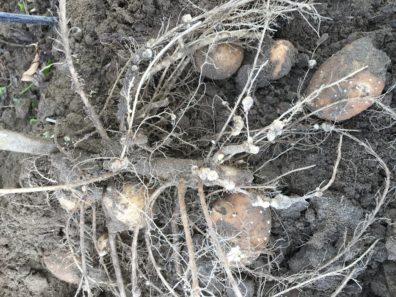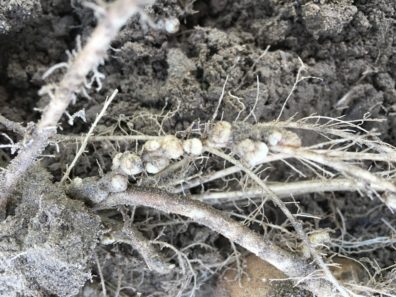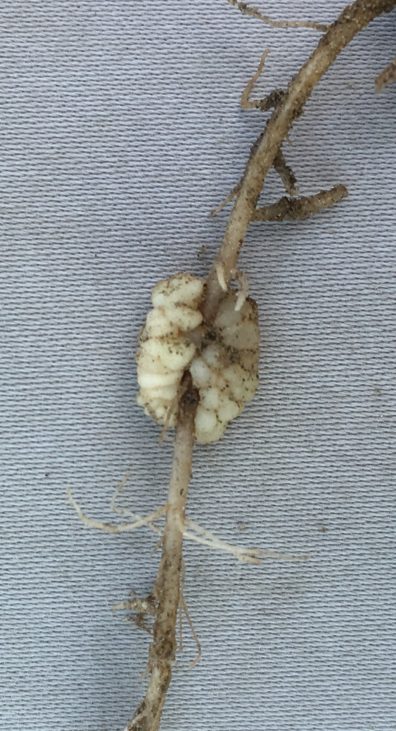Tanaka Lab – Research
Improved disease control strategies for potato powdery scab
Potato powdery scab disease has in recent decades insidiously spread in many regions where potatoes are grown, including most potato production areas in Washington State. This disease is caused by a soil-borne pathogen, Spongospora subterranea, and leads to symptoms of significant cosmetic damage on the skin of potato tubers and the formation of root galls, which reduce nutrient and water uptake. Spongospora is also responsible for the transmission of Potato mop-top virus (PMTV) which causes significant suppression of plant growth and internal tuber necrosis. PMTV is an emerging disease that occurs in epidemics along with Spongospora, and is also an impediment to foreign trade, because it is a reason for rejection of shipments to some countries. Despite many research efforts, fully effective fungicides or fumigation treatments for powdery scab have not been developed. Once the powdery scab disease has infested a field, it remains infectious for many years, that is, management practices, for example, crop rotations, have little impact on this disease. There is a clear need for the development of novel pathogen management strategies. Our long term goal is to initiate disease control strategies against powdery scab.



In our lab, we have a project aiming to develop a diagnostic method to survey powdery scab infestation on farms, and also to improve grower education about the powdery scab disease. Current management of the disease relies heavily on fungicides and soil fumigations that are only partially effective against powdery scab, and are expensive and risky to applicators and the environment. The sustainability and profitability of the state’s potato industry will benefit from improved diagnostics and disease control strategies specifically targeting powdery scab.
Another project is to identify a pathogen- or plant-derived defense inducer (so-called elicitor) that evokes a specific and strong defensive response in potato roots against the powdery scab pathogen. Plants are able to recognize the elicitors that trigger a number of plant defense responses, eventually leading to enhanced resistance against the pathogen. Especially, plant-derived elicitors are used for damage-self recognition by plants. Once we identify a specific elicitor, we will test its potential effects on the powdery scab infection. We will also test the effect of the identified elicitor against other pathogens that cause Pythium leak, pink rot, Fusarium dry rot, silver scurf and soft rot. The identified elicitor can be useful for developing novel fungicides in the future. The identified elicitors will be also an important agent for understanding the mechanism of the potato-pathogen interaction, i.e., how the powdery scab pathogen is recognized by the plant cells in potato roots that subsequently trigger the plant defense system. Our ultimate goal is to develop a new system for the control of powdery scab infestation, eventually for the prevention of PMTV infection, by modifying the innate immune system in potato roots.
Funding sources
Tanaka lab – Home | Research | Publications | Personnel | Opportunities | Lab News
Department of Plant Pathology | Washington State University | PO Box 646430, Pullman, WA 99164-6430

